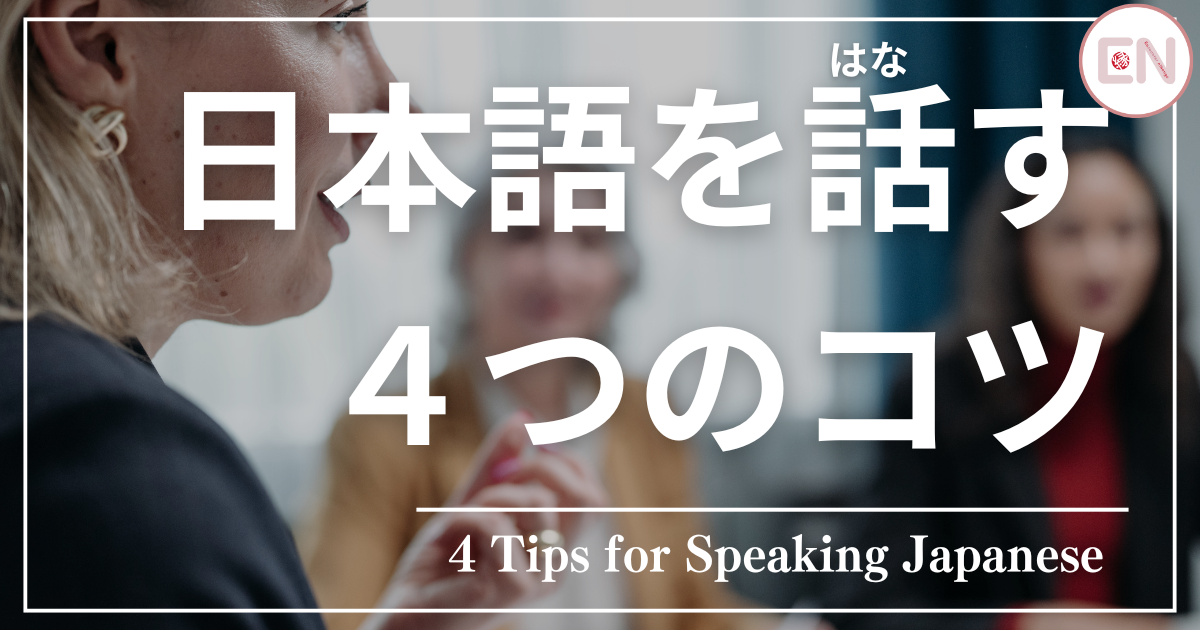 えみ先生
えみ先生Konnichiwa, everyone!
I’m glad you made it here.🫶
I assume you’re either about to start learning Japanese or have already begun, but are struggling with speaking.
I’m here to give you 4 tips from my experiences of teaching over 100 students in the past 3 years.
#1 Don’t Be Afraid to Make Mistakes!
This is not only for Japanese but also for learning any language you’re about to start.
While we have grammar rules and vocabulary to form sentences but there are various ways of speaking for each person.
You will learn from mistakes, right?
Example of Making Mistakes

せんせい、ありがとうごじゃいます!
Sensei, arigato gojyaimasu!
 えみ先生
えみ先生We say, “Arigato gozaimasu.”
But we stumble over our words too.
Don’t worry about it!
Mistakes like these are beneficial because they help you remember the correct form next time.
The important thing is to look back on your mistakes and remember them so you don’t make them again.
Mistakes aren’t bad – they’re stepping stones to improvement. What matters most is trying to speak!
#2 Don’t Speak Japanese in the Same Way You Speak in Your Native Language
As a Japanese language teacher, I often see people trying to speak Japanese using the same grammar as English or their native language.
However, each language has its own grammar, words, and rules.
If you try to speak Japanese in the same way as English or your native language, it may sound unnatural, and native speakers might have difficulty understanding you.
 えみ先生
えみ先生But I understand!!
I know how you feel…
When you first start learning a language, you don’t know much about grammar and language, so you try to translate directly from your language.
I faced the same issue when I started learning English. I would first think of what I wanted to say in Japanese and then translate it into English in my head.
That’s ok at initially, but please keep this in mind: use the grammar and vocabulary you’ve learned.
Avoid trying to create original structures prematurely.
If you’re trying to improve as soon as possible, try to think a lot of Japanese in your head.
It is hard for sure, but if you make it a daily habit, you will gradually get used to it.
 えみ先生
えみ先生It took me 3 months to come up with something in English without thinking about it in Japanese.
*I was studying abroad in the states at the time, so I was speaking English almost 24/7.
Example of Speaking Japanese in the Same Way as Your Native Language

あなたは、げんきですか?
anata wa genki desuka?
(It should mean “How are you?” in Japanese…!)

He just asked me if I’m healthy or not…?
I am, but did he think I was sick…?
Yeah, we learn 「げんきですか?」 in Japanese as “How are you?” , which is correct.
But culturally, Japanese people don’t say “How are you?” as a daily greeting.
Instead, we just say “Ohayo gozaimasu (Good morning),” “Konnichiwa (Hello/Good afternoon),” or “Konbanwa (Good evening)” whichever suits the occasion.
Japanese has its own sentence structure and flow.
Instead of translating directly from your native language, listen to how Japanese people speak and get used to its natural patterns.
#3 Ask Tons of Questions!
 えみ先生
えみ先生Did you understand what your sensei explained?
… Are you sure?
Ok, make a sentence in the situation of ~~~~~.
During a lesson, try asking,
“Why do we use ga here instead of wa?”
or, “Can you give me more example sentences using this word?”
Asking specific questions about what you’re learning will make things click faster.
This approach is also effective when you’re having a conversation with Japanese speakers.
Asking questions in the conversation naturally gives you more practice for your speaking/listening skills.
Asking questions not only clears up confusion but also deepens your understanding.
Don‘t be shy. – Curiosity helps you improve!
#4 Forgetfulness Is Normal – Review What You’ve Learned!
 えみ先生
えみ先生I forget, you forget, we all forget.
As you begin learning Japanese, you’ll encounter a vast amount of information: Japanese alphabets, vocabulary, grammar rules, and more….
We tend to focus on what we just learned.
But please don’t forget the grammar and vocabulary you learned earlier!
Example of Reviewing What You Learned

あした、umm… University きてください。We’ll have a party!
 えみ先生
えみ先生You learned “There is [EVENT]” grammar!
You can always ask me when you forget.

えみせんせい、”There is ~.” にほんごで なんですか?
Emi sensei, “There is ~” nihongo de nandesuka?
<What is “There is ~” in Japanese?>
You know you know it!
But after a month, you may forget how to use it.
That’s okay! Just take a moment to review it again. And feel free to ask questions!
Everyone forgets.
Reviewing what you‘ve already learned is the secret to long-term progress.
Wrap Up

Those tips are easy!
I already knew them🥱
 えみ先生
えみ先生That’s good!
So you must follow those tips in every lesson, right?

あ、はい…。ちょっとだけ…。
A, hai… chotto dake…
<Oh, y, yes… just a little…>
These four tips will help you become a better Japanese speaker.
The hardest part is to be aware of these tips and carry them out.
Don’t worry about making mistakes. – Just dive in and enjoy the process!
Your Next Step:
Set a small goal today, like saying one thing in Japanese.
Ready? Let’s go!




コメント|Comment